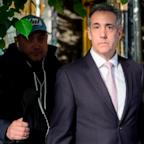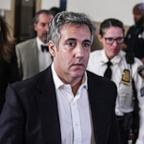When recessions end, stocks win
NEW YORK -- The recession is over. So say a growing number of prognosticators ranging from stock strategists at Merrill Lynch to magazines such as Newsweek to many data-tracking economists.
While not all forecasters are willing to declare the so-called Great Recession dead, stocks are firmly back in rally mode, thanks to a growing consensus on Wall Street that the economy has hit bottom and that growth will resume in this quarter or in the final three months of the year.
"The worst recession since the Great Depression is likely coming to an end," says Sung Won Sohn, economics professor at California State University. Friday's better-than-expected July jobs report fanned hopes for a recovery, as did a report a week earlier showing the economy shrank less than expected in the second quarter.
And that bodes well for stocks, if history is any guide. Following recessions in the post-World War II era, stocks have posted positive returns in nine of the 10 cases both six months and 12 months after the end of the recession, says Ned Davis Research (NDR).
The Standard & Poor's 500 has gained an average 9% six months after recessions and 14% a year after them, NDR says. If the recession ended now, the average 9% and 14% gains would put the S&P, at 1010 on Friday, at roughly 1100 in six months and 1150 in a year. Of course, stocks have already posted big gains as optimism about the economy has grown. Friday, the Dow Jones industrial average jumped 114 points to 9370, boosting its gain off the March low to 43%. That same period, the S&P is up 49%.
Stocks shoot higher post-recession as investors begin to price in better, sustainable economic growth. Typically, as economies heal, consumers feel more confident and spend more, businesses sell more, and that means fatter corporate profits.
However, some Wall Street pros say the current economic recovery may be far weaker than past rebounds because of the severe hit to consumers' wealth caused by the housing bust, earlier stock plunge and weak job market. Some skeptics, such as Jeffrey Kleintop, strategist at LPL Financial, question if the rebound will be sustainable, given that government stimulus will eventually fade, placing fresh stresses on the private sector. The Federal Reserve will eventually have to raise interest rates, which could also slow the recovery.




